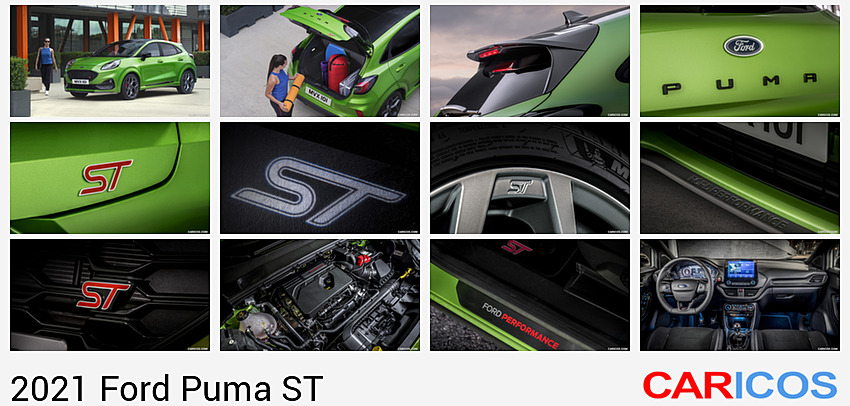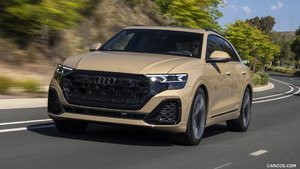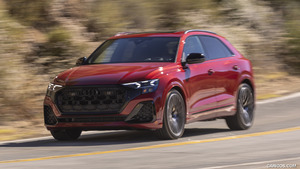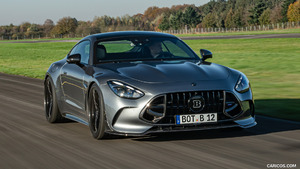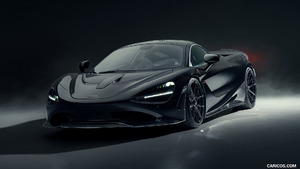2021 Puma ST
- New Ford Puma ST delivers 200 PS, 6.7-second 0-100 km/h acceleration, unique-in-segment mechanical LSD option and drive modes from Eco to Track for ultimate versatility
- First Ford Performance SUV in Europe features bespoke chassis: 40 per cent stiffer twist-beam than Fiesta ST counters higher centre of gravity, force vectoring springs support agility
- Bold sports styling in exclusive Mean Green, 19-inch alloys and Recaro seats feature beside innovative Ford MegaBox for best-in-class loadspace, and Local Hazard Information
The all-new Ford Puma ST introduces acclaimed Ford Performance driving dynamics to the compact SUV segment for the very first time in Europe.
Enhanced with sophisticated Sports Technologies including a unique-in-segment limited-slip differential (LSD) option and patented force vectoring springs, Puma ST also features selectable Drive Modes including Sport mode and – for the first time on a Ford Performance vehicle – Eco mode; providing drivers with options for a wide range of road driving scenarios.
Combined, these innovations deliver the energised driving experience Ford Performance models are famous for across Europe, while retaining the comfort and flexibility offered by Ford’s new compact SUV.
The Puma ST is powered by a 200 PS 1.5 litre EcoBoost engine1 delivering 0 100 km/h (0 62 mph) acceleration in 6.7 seconds. An optimised chassis features bespoke twist-beam, anti-roll bar and damper configurations. Steering responses are 25 per cent faster and brakes 17 per cent larger than the standard Puma. Specially-developed Michelin Pilot Sport 4S tyres also help deliver the most agile Ford SUV driving experience yet.
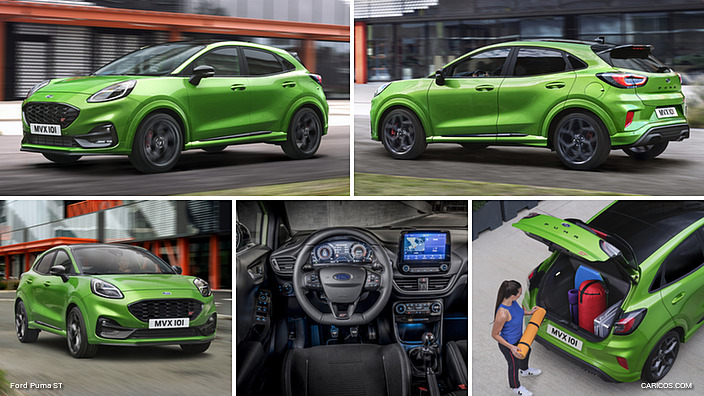 2021 Ford Puma ST
2021 Ford Puma ST
Performance enhancements and aggressive styling sit side-by side with innovative features including Local Hazard Information connected-car technology2 and the Ford MegaBox that provides 80 litres of storage beneath the boot floor for everyday practicality.3
“Real driving enthusiasts aren’t going to settle for less excitement just because life demands a more ‘sensible’ car, so our number one priority was that the Puma ST had to be as exhilarating and capable as every ST model, without sacrificing any of Puma’s practicality,” said Stefan Muenzinger, Ford Performance manager, Europe. “We believe that we have the best-handling small SUV in its segment. It really does feel connected and has the true ST feel. It is a joy to drive.”
Redefining SUV agility
Ford Performance worked alongside Michelin to develop a bespoke tyre specification to complement the Puma ST’s enhanced chassis, without sacrificing the refined ride quality – one of the most compelling SUV attributes.
The Michelin Pilot Sport 4S tyres can fully exploit the additional traction offered by the optional Quaife mechanical limited-slip differential, delivered as part of the available performance pack.
The Puma ST is the only small performance SUV in Europe to be offered with an LSD, which optimises front-end traction to enhance cornering ability and minimise understeer, in particular on the exit of corners.
The purely mechanical system distributes engine torque to the wheel with the most grip, reducing wheel spin and allowing the driver to fully exploit the engine performance.
The LSD option works alongside Torque Vectoring Control, which improves road-holding and reduces understeer by applying brake force to the inside front wheel when cornering. The balance between the two features has been fine-tuned by Ford Performance to optimise grip on dry surfaces and smoothness on wet surfaces.
Puma ST further enhances Ford’s B-car architecture to counterbalance the vehicle’s naturally higher centre of gravity. The rear suspension twist-beam is uprated to 2,000 Nm/deg torsional stiffness, an increase of more than 40 per cent compared with Fiesta ST and 50 per cent compared to the standard Puma, with a 28 mm anti-roll bar integrated into the U section. A front 24 mm anti-roll bar also contributes to cornering stability.
Ford’s patented force vectoring springs also improve the Puma ST’s stability, agility and responsiveness. The non-uniform, non-interchangeable, directionally-wound springs apply vectoring forces to the rear suspension and enable cornering forces to travel directly into the spring, for increased lateral stiffness.
The spring technology works in combination with Hitachi twin-tube frequency-reactive dampers at the front and rear, with the stiffness needed for enhanced body control alongside the compliance to isolate smaller road imperfections for high-speed refinement. Bespoke bump stops have been specified to maintain control under high suspension loads.
Puma ST’s steering delivers an 11.4:1 ratio – almost 25 per cent faster than the standard Puma – provided by a combination of revised front knuckle featuring a shorter steering arm and faster steering rack gearing, for heightened turn-in response.
“Steering is a focal point of any ST model as it’s key for the interaction between driver and vehicle. The Puma ST turn-in response is exceptional. The direct and precise vehicle reaction provides confidence – a key ingredient for fun-to-drive,” Muenzinger said.
Braking performance is also optimised for a true ST driving experience. Front discs are increased by 17 per cent in diameter compared with the standard Puma specification to 325 mm, and 271 mm discs feature at the rear. Puma ST’s brake booster is tuned for modulation, feel and feedback that supports performance driving.
Powerful, responsive EcoBoost performance
Ford’s sophisticated 200 PS 1.5-litre EcoBoost petrol engine – first introduced for the multi-award-winning Fiesta ST – features advanced turbocharging and high-pressure fuel injection technologies alongside Twin-independent Variable Cam Timing to deliver sports car performance with optimised fuel efficiency.
The all-aluminium engine’s three-cylinder architecture provides naturally high torque at low rpm, and performance is enhanced by a radial-axial turbocharger and an integrated exhaust manifold that minimises the distance exhaust gasses travel between cylinders and turbocharger – both helping build boost pressure faster and minimise lag.
Peak power is available at 6,000 rpm, with peak torque increased to 320 Nm between 2,500 rpm and 3,500 rpm, contributing to linear acceleration and enhanced responsiveness.
In addition to a bespoke air-intake and a free-flowing exhaust system for maximum performance, the Puma ST also features new roll-restricting engine mounts that minimise unwanted movements particularly during hard cornering, while supporting everyday refinement.
Active exhaust valve technology amplifies the naturally sporty three-cylinder engine sound to enhance the driving experience. Ford Performance tuned the exhaust note to better suit the Puma ST’s more refined SUV character – the model is approximately 1 decibel quieter than the Fiesta ST for a more composed cruising experience.
Industry-first innovation further enables the 1.5-litre EcoBoost engine to be as sensible as it is sporty. Ford’s cylinder deactivation technology was the first to feature for a three-cylinder engine and can automatically stop fuel delivery and valve operation for one of the engine’s cylinders in conditions where full capacity is not needed, such as when coasting or cruising with light demand on the engine.
The technology can disengage or re-engage one cylinder in 14 milliseconds – 20 times faster than the blink of an eye – saving fuel and seamlessly contributing to anticipated 6.0 l/100 km fuel efficiency and 134 g/km CO2 emissions NEDC (6.9 l/100 km and 155 g/km WLTP).1 A rapid light-off gas particulate filter also reduces soot emissions.
Puma ST is offered with the same direct, smooth-shifting six-speed manual transmission as the Fiesta ST, with a shortened final drive ratio to enable 6.7-second 0-100 km/h (0 62 mph) acceleration and a 220 km/h (137 mph) top speed while accommodating statement 19-inch alloy wheels.
Modes to suit your mood
Selectable Drive Modes are key to the Puma ST’s versatility. From a Track mode that configures the performance SUV for maximum fun-to-drive, to Eco mode, offered for the first time on an ST model, Drive Modes alter Puma ST’s character to suit scenario or mood.
- In Normal mode, engine mapping, traction control, electronic stability control (ESC), active exhaust valve and electric power-assisted steering (EPAS) are configured to deliver natural responsiveness and a connected feel
- In Eco mode, engine mapping and throttle response are configured for maximum fuel efficiency
- In Sport mode, engine mapping and throttle pedal response are sharpened, and EPAS settings adjusted to deliver more feedback and finer control for fast road driving. The active noise control valve opens to intensify the sporty exhaust note. Sport mode is accessible immediately using a dedicated button on the steering wheel
- In Track mode, all vehicle dynamics features are tuned for the fastest possible lap times, traction control is disabled, and ESC interventions are set to wide-slip mode for the purest driving experience
In addition, three-mode ESC enables drivers to choose between full system intervention; wide-slip mode with limited intervention; and full system de-activation.
Developed for use on track only and available as part of the optional performance pack, Launch Control enables drivers to achieve maximum satisfaction with consistently fast standing starts. Selected using steering wheel controls, the system activates a dedicated graphical display in the 12.3-inch digital instrument cluster.
Holding the throttle fully open will instruct the system to build engine rpm and automatically hold at the rev limit – filling an on-screen gauge that indicates when the car is prepared for launch. Releasing the clutch fully then enables an optimised standing start with ESC, traction control, Torque Vectoring Control and Torque Steer Compensation systems managing power and torque delivery.
Eye-catching looks and specification
Puma’s sporty styling – including a sloping roofline silhouette and pronounced wheel arches – lends itself to a more extreme Puma ST design that combines form and function.
A Ford Performance-embossed splitter is integrated into the front bumper to increase front end downforce by almost 80 per cent for greater stability and traction. The large rear roof spoiler also supports optimised aerodynamics, with a distinctive diffuser incorporated into the rear bumper. Signature ST upper and lower grilles are designed to deliver increased engine cooling capability.
The Puma ST offers Magnetite or machined metal finishes for the standard 19-inch alloy wheels, and six available exterior body colours include Agate Black, Desert Island Blue, Fantastic Red, Frozen White, Magnetic and bold, ST-exclusive Mean Green. A gloss black finish for the roof, grille surrounds, side spears, door mirror caps and rear roof spoiler are all standard, making the model even easier to identify.
The interior is equally charismatic; but even before entering, standard power-foldable door mirrors project the ST logo onto the ground when unlocking.
Inside, heated, bolstered Recaro sports seats – embossed with the ST logo and finished in grippy Miko Dinamica material – hold driver and front passenger firmly in place. Ford Performance skid plates, a flat-bottomed leather steering wheel and ST gear knob also feature. Seats, gear lever gaiter and ST-branded floor mats are finished with Metal Grey stitching.
The exclusive Puma ST interior continues to offer best-in-class uncompromised loadspace of 456 litres,3 supported by the innovative Ford MegaBox. The adaptable storage solution provides a deep, versatile, 80-litre storage space beneath the boot floor – capable of comfortably accommodating two golf bags in an upright position.
Standard features to maximise comfort and convenience include a wireless charging pad, Quickclear heated windscreen, front and rear parking sensors, rain-sensing wipers and Ford’s SYNC 3 communications and entertainment system – allowing drivers to control audio, navigation and connected smartphones using simple voice commands.4
The system delivers Apple CarPlay and Android Auto™ compatibility at no extra cost and is supported by an 8-inch central touchscreen that displays the Ford Performance logo on start up. A premium B&O sound system also is available.
Standard FordPass Connect modem technology5 allows Puma ST owners to remotely control a selection of vehicle features – including Door Lock Unlock and Vehicle Locator – via the FordPass mobile app.6 The modem also enables cloud-connected Local Hazard Information,2 which can inform drivers of a hazardous situation on the road ahead, even if the incident is not visible due to a bend in the road or other vehicles.
Further available driver assistance technologies include Pre-Collision Assist with Active Braking,2 Active Park Assist,2 Cross Traffic Alert with Active Braking,2 and Intelligent Speed Limiter.2
“Our new Puma ST is practical and refined with head-turning SUV proportions, but able to deliver hot-hatchback thrills,” Muenzinger said.
PERFORMANCE AND ECONOMY
| CO2 from (g/km NEDC) | Fuel consumption from (l/100 km NEDC) | Fuel consumption from (l/100 km WLTP) | CO2 from (g/km WLTP) | |||||
| Petrol engines | Power PS | Wheel size inch | Combined | Urban | Extra Urban | Combined | Overall | Overall |
| 1.5-litre EcoBoost 6-speed manual | 200 | 19 | 134 | 7.6 | 5.0 | 6.0 | 6.9 | 155 |
| Performance | ||||
| Petrol engines | Power PS | Max speed km/h | 0-100 km/h sec | 50-100 km/h sec* |
| 1.5-litre EcoBoost 6‑speed manual | 200 | 220 | 6.7 | 5.9 |
* In 4th gear
WEIGHTS AND DIMENSIONS
| Kerb weight (kg)# | Gross Vehicle Mass (kg) | Gross Train Mass (kg) | Max. Towable Mass (braked) (kg) | Max. Towable Mass (unbraked) (kg) | Nose weight (kg) | Roof load (kg) | |
| 1.5 EcoBoost 200 PS 6-speed manual | 1358 | 1815 | 2565 | 750 | 640 | 75 | 25 |
# Represents the lightest kerbweight assuming driver at 75 kg, full fluid levels and 90 per cent fuel levels, subject to manufacturing tolerances and options, etc., fitted. Weights represent base model specification without panoramic glass roof.
Towing limits quoted represent the maximum towing ability of the vehicle at its Gross Vehicle Mass to restart on a 12 per cent gradient at sea level. The performance and economy of all models will be reduced when used for towing. Gross Train Mass includes trailer weight.
Dimensions
| Dimensions (mm unless stated) | Puma ST |
| Exterior | |
| Overall length without tow bar | 4226 |
| Overall width mirrors extended/folded | 1930/1805 |
| Overall height (with shark fin antenna, unladen) | 1533 |
| Wheelbase | 2588 |
| Front track | 1565 |
| Rear track | 1518 |
| Front overhang | 875 |
| Rear overhang | 763 |
| Min ground clearance (GVM) | 131 |
| Min ground clearance (kerb) | 152 |
| Approach Angle (degrees) | 13,8 |
| Departure Angle (degrees) | 24,0 |
| Interior | |
| Front headroom (without panorama roof) | 1000 |
| Front headroom (with panorama roof) | 983 |
| Front legroom (maximum with seat in rear-most mid-height position) | 1127 |
| Front shoulder room | 1348 |
| Front hip room | 1311 |
| Rear headroom (without panorama roof) | 965 |
| Rear legroom (maximum with seat in rear-most mid-height position) | 877 |
| Rear shoulder room | 1320 |
| Rear hip room | 1278 |
| Luggage capacity (litres) ‡ | |
| 5-seat mode, laden to package tray (with tyre repair kit) | 456 |
| 2-seat mode, laden to roof (with tyre repair kit) | 1216 |
| Luggage compartment dimensions | |
| Maximum loading height | 865 |
| Load length at floor to 1st row (tyre repair kit) | 1472 |
| Load length at floor to 2nd row seats | 725 |
| Load width between wheelhouses | 1000 |
| Load opening width (floor) | 982 |
| Lift-over height (kerb) | 754 |
| Fuel tank capacity (litres) | |
| Petrol | 45 |
‡ Measured in accordance with ISO 3832. Dimensions may vary dependent on the model and equipment fitted.
DRIVER ASSISTANCE TECHNOLOGIES
| Adjustable Speed Limiter |
| Auto high beam |
| Auto lighting and rain-sensing wipers |
| Blind Spot Information System |
| Cross Traffic Alert with Active Braking |
| Cruise Control |
| Driver Alert |
| Enhanced Active Park Assist |
| Forward Collision Warning |
| Front and rear parking sensors |
| Hill Launch Assist |
| Intelligent Speed Limiter |
| Local Hazard Information |
| Lane Keeping Alert |
| Post-Collision Braking |
| Pre-Collision Assist with Active Braking |
| Rear wide-view camera |
| Selectable Drive Modes |
| Traffic Sign Recognition |
| Wrong Way Alert |
COMFORT AND CONVENIENCE≠
| B&O Sound System |
| Ford MegaBox |
| FordPass Connect modem |
| Hands-free tailgate |
| Adjustable Lumbar support seats |
| Openable panoramic roof |
| SYNC 3 with 8-inch touchscreen |
| Wireless charging pad |
≠Feature availability dependent on vehicle specification
STEERING
| System | Rack and pinion with Electronic Power Assisted Steering (EPAS) |
| Ratio | 11.4:1 |
| Turning circle (m) kerb-to-kerb | 11.2 |
CHASSIS
| Front suspension | Independent suspension with MacPherson struts, Hitachi twin-tube frequency reactive shock absorbers and 24.2 mm x 6 mm diameter anti-roll bar |
| Rear suspension | Twist-beam rear suspension with toe-correcting angled bushes and 28 mm anti-roll bar. In-car stiffness of 2000 Nm/deg. Force vectoring springs located below floor and separate Hitachi twin-tube frequency reactive shock absorbers |
BRAKES
| Front | Rear | |
| Braking | Hydraulically operated dual-circuit system with diagonal distribution. Vented front discs. Solid rear discs. Electronic four-channel anti-lock braking system (ABS) with electronic brake-force distribution (EBD), Electronic Stability System (ESP) and Emergency Brake Assist (EBA). Optional autonomous emergency braking (AEB) as part of Pre-Collision Assist with Active Braking and Cross Traffic Alert with Active Braking | |
| Disc/Drum dimensions (mm) | Ø325 x 27 | Ø271 x 11 |
| Piston dimensions (mm) | Ø57 | Ø36 |
WHEELS & TYRES
| 8J x 19-inch alloy wheels (available in Magnetite finish and machined metal finish) with Michelin PS4S 225/40 R19 with |
PETROL ENGINE
| 1.5-litre EcoBoost (200 PS) | ||
| Type | In-line three-cylinder turbo petrol, Ti-VCT, transverse | |
| Displacement | cm3 | 1497 |
| Bore | mm | 84.0 |
| Stroke | mm | 90.0 |
| Compression ratio | 9.7:1 | |
| Max power | PS (kW) | 200 (147) |
| at rpm | 6000 | |
| Max torque steady state | Nm | 320 |
| at rpm | 2500-3500 | |
| Valve gear Cylinders | DOHC with 4 valves per cylinder, twin independent variable cam timing | |
| 3 in-line, cylinder deactivation technology | ||
| Cylinder head | Cast aluminium | |
| Cylinder block | Cast aluminium | |
| Camshaft drive | Chain drive with hydraulic tensioner | |
| Crankshaft | Cast iron, 6 counterweights, 4 main bearings | |
| Engine management | Bosch MG1CS016 with CAN-Bus and individual cylinder knock control. FGEC software | |
| Fuel injection | High pressure direct fuel injection with 6-hole injectors (DI) plus 3 low-pressure individual port injectors (PFI) | |
| Emission level | Euro 6d | |
| Emission control | Rapid light-off catalyst, gasoline particulate filter | |
| Turbocharger | Continental RAAX low-inertia turbocharger | |
| Lubrication system | Two-stage variable displacement oil pump | |
| Cooling system | Single thermostat | |
| Transmission | 6-speed manual with optional Quaife Limited-Slip Differential | |
| Gear ratios | 6th 0.651 5th 0.775 4th 0.971 3rd 1.290 2nd 1.952 1st 3.583 R 3.333 FDR 4.563 |


